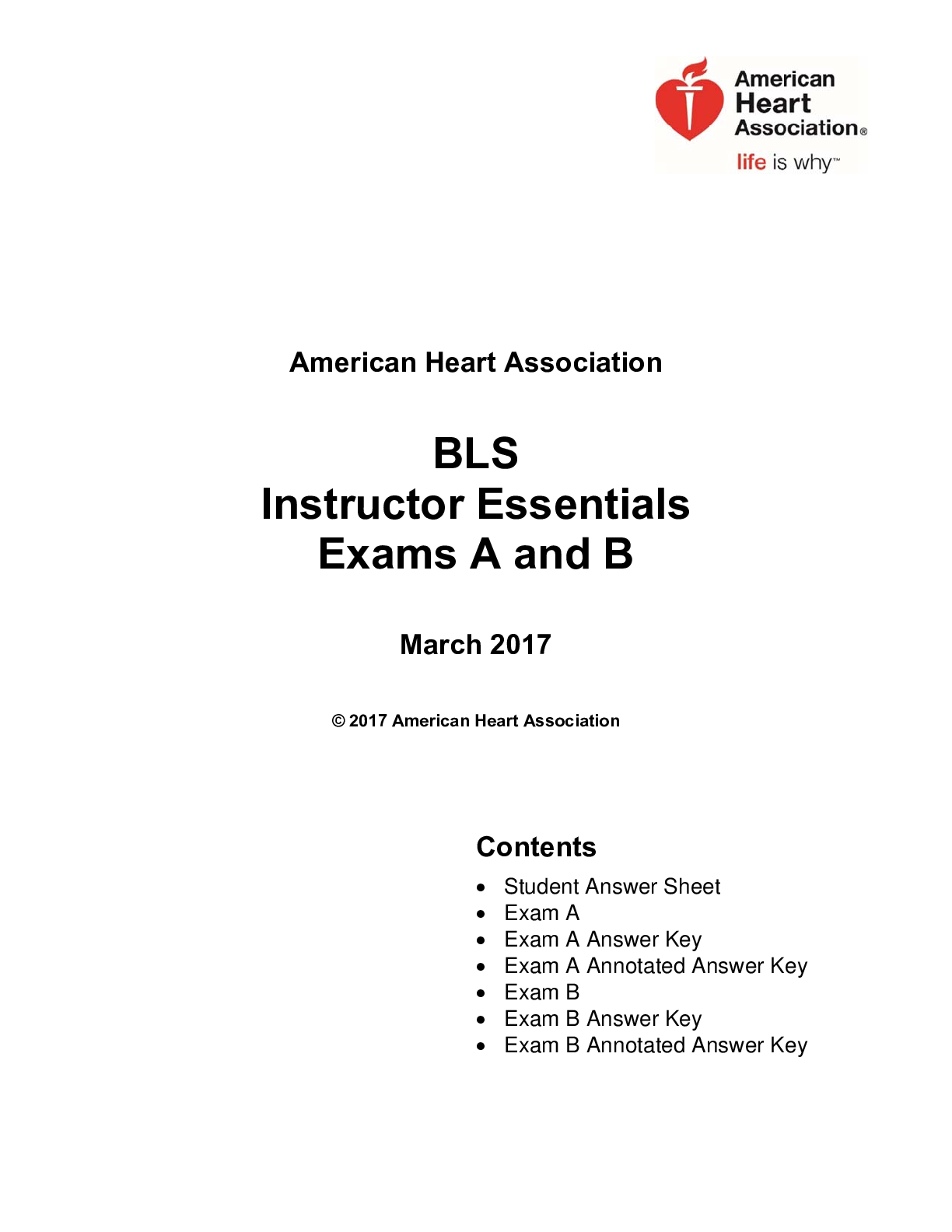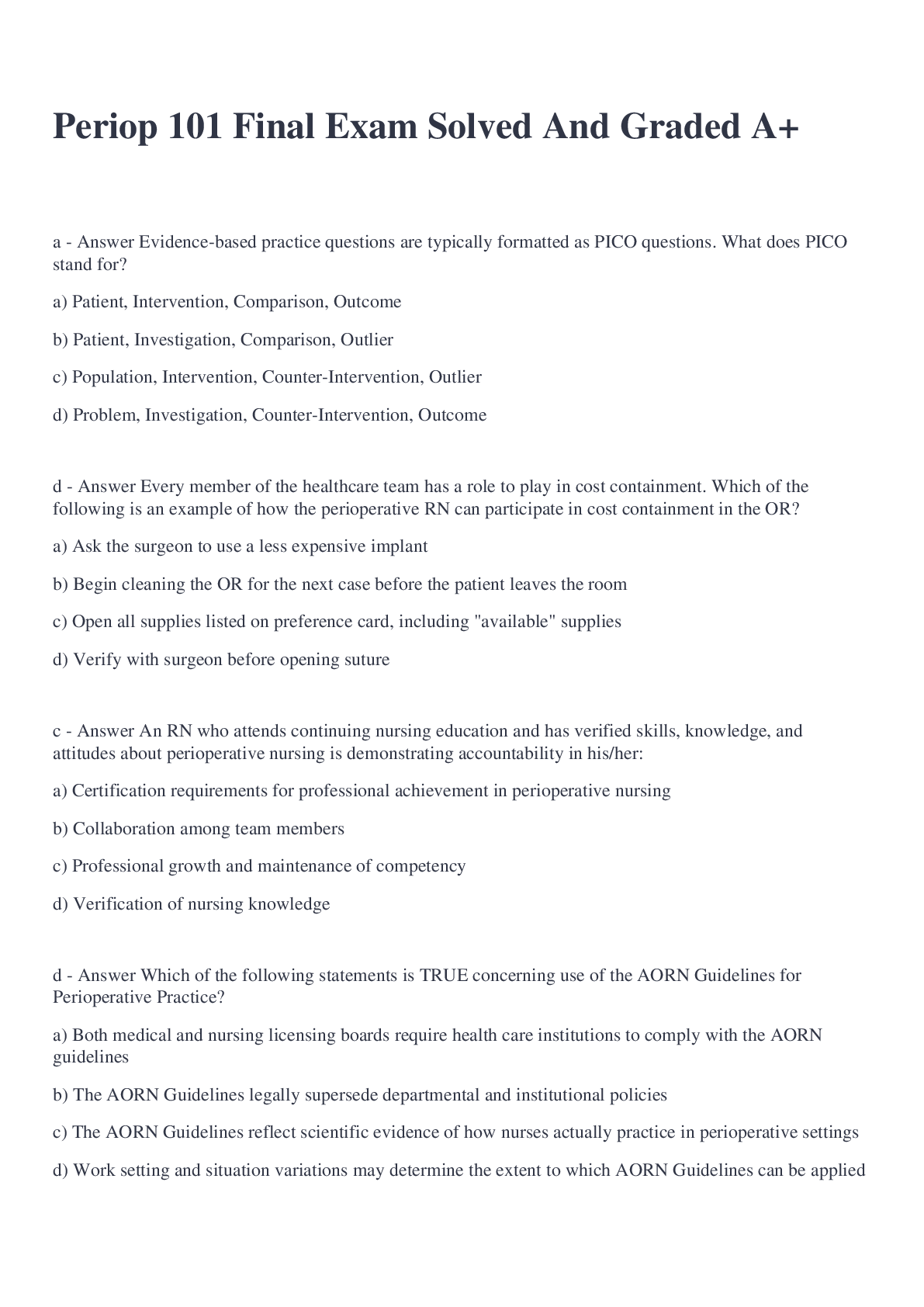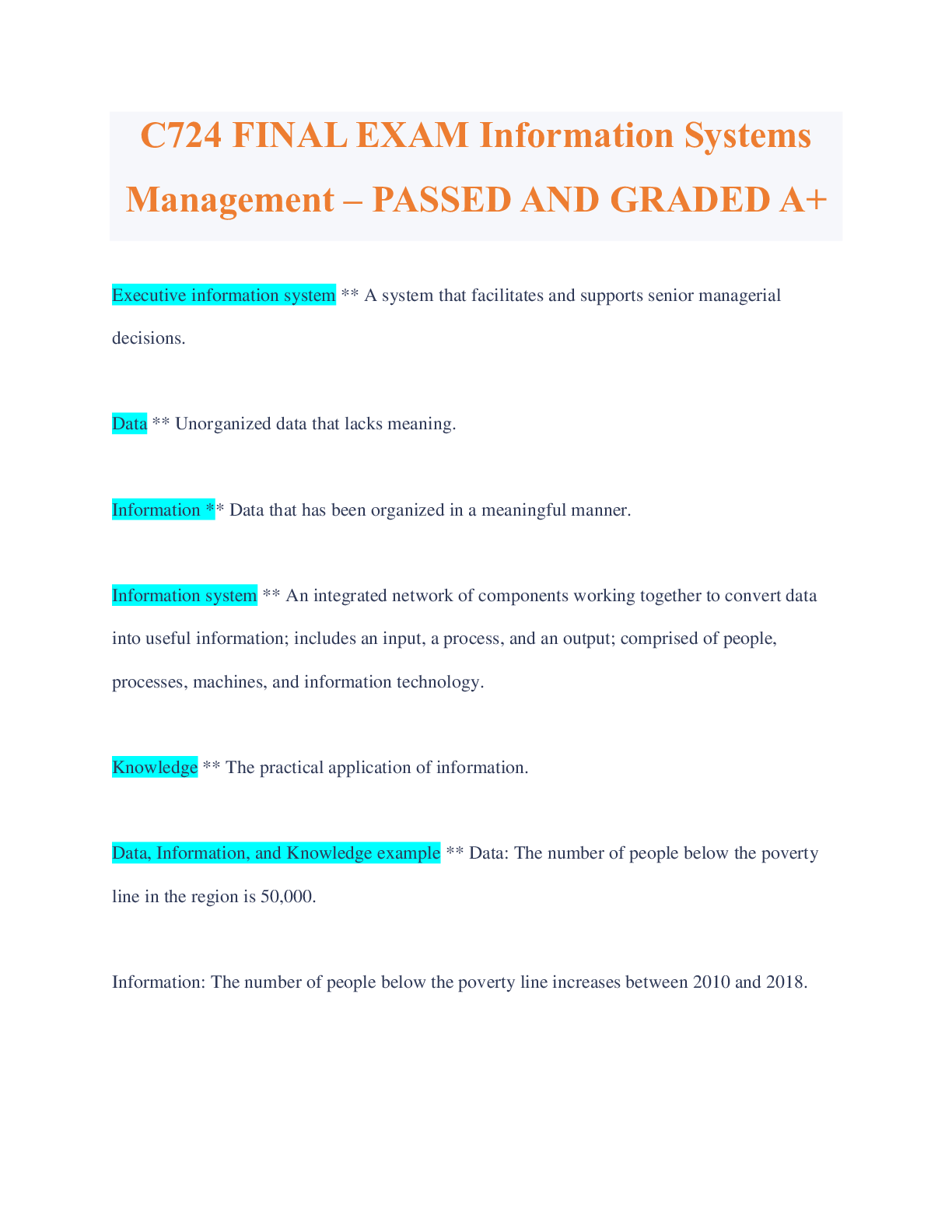Political Science > QUESTIONS & ANSWERS > WGU C963 - Objective Assessment Superset Questions and Answers Latest Updated and Graded A+ (All)
WGU C963 - Objective Assessment Superset Questions and Answers Latest Updated and Graded A+
Document Content and Description Below
WGU C963 - Objective Assessment Superset Questions and Answers Latest Updated and Graded A+ Major contributors to social contract theory ✔✔Hobbes, Locke, Reasseau Social Contract Theory ✔✔... We need food, clothing and shelter to survive and nothing should interfere with our ability to obtain them. We may also choose to believe in a god. The belief gives definition to our existance. Therefore it is important we define ourselves as individuals. Enlightenment Influence on Constitution ✔✔Bill of Rights and the Second Amendment, Ninth Amendment Bill of Rights (Enlightenment) ✔✔The first eight Bill of Rights Declaration of Independence (Enlightenment) ✔✔people have rights of life, liberty, and the pursuit of happiness Articles of Confederation weaknesses ✔✔No executive, no judicial, no power to tax, no power to regulate trade Articles of Confederation - Strengths ✔✔Provided direction for the Revolution, the ability to conduct diplomacy with Europe, and deal with territorial issues and Native American relations. New Jersey Plan ✔✔The proposal at the Constitutional Convention that called for equal representation of each state in Congress regardless of the state's population. Virginia Plan ✔✔Proposal to create a strong national government Constitutional Convention ✔✔A meeting in Philadelphia in 1787 that produced a new constitution Three-Fifths compromise ✔✔Agreement that each slave counted as three-fifths of a person in determining representation in the House for representation and taxation purposes (negated by the 13th amendment). Bicameral congress. Checks and Balances ✔✔A system that allows each branch of government to limit the powers of the other branches in order to prevent abuse of power Separation of Powers ✔✔Constitutional division of powers among the legislative, executive, and judicial branches, with the legislative branch making law, the executive applying and enforcing the law, and the judiciary interpreting the law Federalists ✔✔A term used to describe supporters of the Constitution during ratification debates in state legislatures. Anti-Federalists ✔✔Opponents of the American Constitution at the time when the states were contemplating its adoption. Ratifying the Constitution ✔✔Article VII, 9 out of 13 states had to agree, it was ratified at state conventions Federalist #10 (factions) ✔✔Elites can never take over rule of the government due to too many factions. Federalist #51 (Madison) ✔✔Separation of powers, checks and balances Separations of Powers ✔✔The division of the federal government into three branches each with its own powers Government Branches ✔✔Three sections of the US government: legislative, executive, and judicial. Each branch has powers that restrict the other branches powers. How are laws made and enforced using the separation of powers ✔✔Congress originates laws Judicial branch reviews laws for constitutionality Executive branch enforces laws system of checks and balances ✔✔Constitutional system in which each branch of government places limits on the power of other branches Several checks the judicial branch has on the legislative and executive branches ✔✔Executive: Can overturn actions of the president with judicial review if the actions violate the Constitution Serve during good behavior to maintain independence of judiciary Legislative: Can overturn acts of Congress as unconstitutional if they violate the law Can influence laws by interpretation Serve during good behavior to maintain independence of judiciary Several checks the legislative branch has on the judicial and executive branches ✔✔Judicial: Senate must approve judges and justices Controls jurisdiction of the courts Determines size of Supreme Court House can impeach judges and Senate can remove them by two-thirds vote Executive: Can override a presidential veto by a two-thirds vote in both chambers Must approve treaties by a two-thirds vote in the Senate Control of funding activities of the executive branch Presidential nominees must be approved by the Senate Only Congress can declare war House can impeach the president or vice president and the Senate can remove them by a two-thirds vote Several checks the executive branch has on the legislative and judicial branches ✔✔Legislative: Can veto legislation Can use executive agreements Can use executive orders Negotiates treaties (not Congress) [Show More]
Last updated: 1 year ago
Preview 1 out of 22 pages
.png)
Also available in bundle (1)
.png)
WGU C963 BUNDLED EXAM QUESTIONS AND ANSWERS WITH COMPLETE SOLUTIONS ALL RATED A+
WGU C963 BUNDLED EXAM QUESTIONS AND ANSWERS WITH COMPLETE SOLUTIONS ALL RATED A+
By Nutmegs 1 year ago
$25
18
Reviews( 0 )
Document information
Connected school, study & course
About the document
Uploaded On
Aug 23, 2022
Number of pages
22
Written in
Additional information
This document has been written for:
Uploaded
Aug 23, 2022
Downloads
0
Views
60

.png)
.png)
.png)
.png)
.png)
.png)
.png)
.png)
.png)
.png)
.png)

.png)

.png)
.png)


.png)
.png)
.png)
.png)
 (1).png)
.png)
.png)
.png)
.png)

.png)
.png)
.png)
.png)
.png)
.png)



